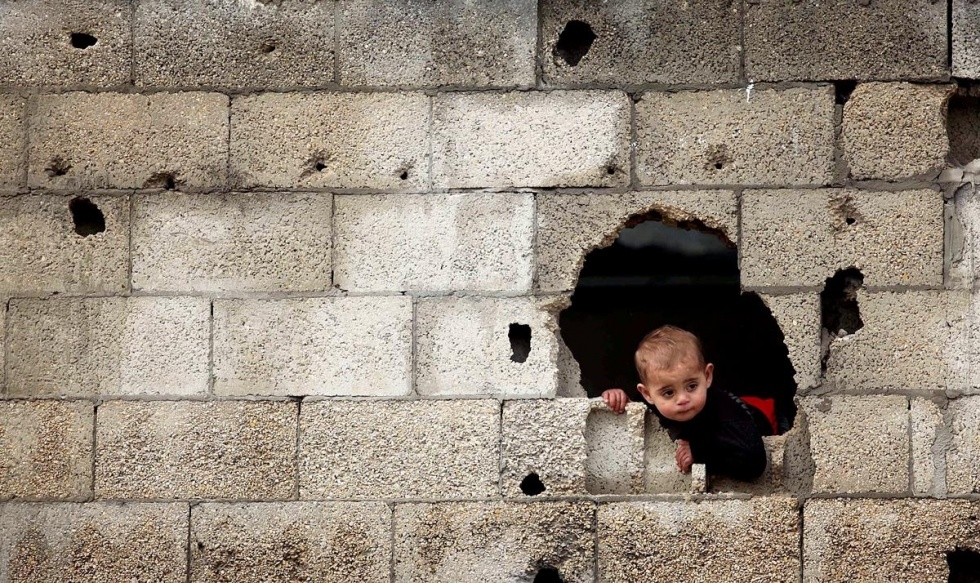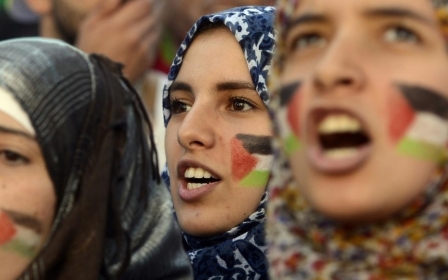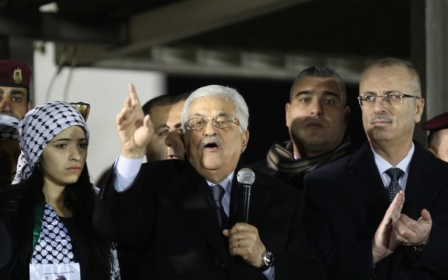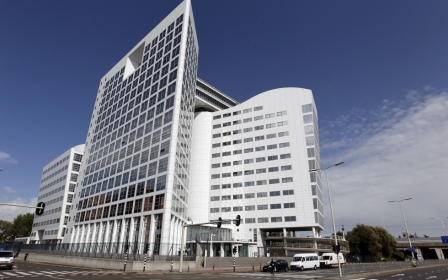First ICC case against Israel to be over Gaza

The first case the Palestinians will refer to the International Criminal Court will be the "crimes" Israel committed during summer 2014, including the Gaza war, a legal expert said Sunday.
On January 2, the Palestinians presented a formal request to join the Hague-based court in a move which opens the way for them to file suit against Israeli officials for alleged war crimes in the occupied territories.
The ICC can prosecute individuals accused of genocide, crimes against humanity and war crimes committed since July 1, 2002, when the court's founding treaty, the Rome Statute, came into force.
If the application process goes as planned, the Palestinians should be able to refer a case in early April, with legal preparations to that end already well under way.
Shawan Jabarin, director of the Ramallah-based rights group Al-Haq, said the Palestinians had decided to file suit over Israel's actions in the West Bank and Gaza Strip starting from June 13, 2014.
The seven-week Israeli offensive against Gaza war killed nearly 2,200 Palestinians (mainly civilians) and 73 people in Israel (mostly soldiers).
Cases referred to the ICC need "a very specific geographic location and timeframe", Jabarin told AFP, saying the same date had been selected by a UN commission probing alleged rights violations during the Gaza war and the period leading up to it.
Chief Palestinian negotiator Saeb Erakat confirmed Gaza would be one of the cases referred to the court, but also said there would be a file put together on Israeli settlement building on land seized during the 1967 Six-Day War.
"The main files will be the aggression against Gaza and the settlement file, since this is a continuous crime," Erakat said on Sunday.
Israel 'won't let its soldiers be dragged to the ICC'
Meanwhile, Israeli Prime Minister Benjamin Netanyahu said on Sunday that Israel will not permit its soldiers to be hauled in front of the ICC on potential war crimes charges.
"We will not let Israel Defence Forces (IDF) soldiers and officers be dragged to the International Criminal Court in The Hague," Netanyahu said at the start of the weekly cabinet meeting, two days after the Palestinians filed the application to become a party to the court.
His remarks were made after Israel froze the transfer of half a billion shekels ($127 million/106 million euros) in tax revenues to the Palestinian Authority in the first of what officials said would be a series of punitive steps following the Palestinian move.
Israel often freezes the transfer of funds as a punitive measure in response to Palestinian diplomatic or political developments it views as harmful.
"The Palestinian Authority has chosen to take a path of confrontation with Israel, and we will not sit idly by," Netanyahu warned, vowing to defend Israeli military personnel from possible prosecution by the court.
"IDF soldiers will continue to defend Israel with determination and strength -- and as they defend us, we will defend them, with the same determination and the same strength," Netanyahu said.
He said the Palestinian leadership should be put on trial before the ICC for signing a 2014 reconciliation agreement with Hamas which led to the establishment of a national consensus government.
"Those who should face justice are the heads of the Palestinian Authority who signed a covenant with the war criminals of Hamas," he said.
Every month, in line with an agreement signed between the two sides in 1994, Israel transfers to the Palestinian Authority tens of millions of dollars in customs duties levied on goods destined for Palestinian markets that transit through Israeli ports.
The tax revenues make up around two-thirds of the Palestinian Authority's annual budget, excluding foreign aid.
Israel eyes tougher moves after Palestinian tax freeze
But Israeli officials warned it was only the first in a series of punitive measures.
"If the Palestinian Authority doesn't take a step back, I think we have to take much more severe steps," said Strategic Affairs Minister Yuval Steinitz, a close associate of Netanyahu, referring to a "gradual dissolution" of the PA.
"We should not aid the existence of this authority."
Israel may also file countersuits against top Palestinian officials, a source close to the government said on Friday.
Speaking to Israeli diplomats serving in Europe, foreign ministry director general Nissim Ben Sheetrit said Israel's response would be "harsher and more comprehensive" than just freezing the taxes, but would not include settlement announcements, ministry spokesman Emmanuel Nahshon told AFP.
"Israel is about to switch from defence to attack mode," Nahshon quoted him as saying, confirming comments first published by the Haaretz website.
A senior official quoted by Haaretz said the government had learned a lesson from that incident and would not be taking any steps making Israel the focus of criticism rather than the Palestinians.
Abbas says may return to UNSC for new statehood bid
Meanwhile, Palestinian Authority President Mahmoud Abbas said on Sunday that his authority was consulting with Jordan on resubmitting to the United Nations Security Council (UNSC) a draft resolution for setting a deadline for ending Israel's occupation of Palestinian territories.
Abbas said Palestinians had the right to join 500 international institutions, treaties and agreements.
"The Palestinian leadership insists to move ahead with its political and diplomatic struggle," Abbas said.
"It will continue to do this until a Palestinian state is established within the 1967 borders with East Jerusalem as its capital," he added during the inauguration of a fair on Jerusalem in Ramallah.
Attending the fair inauguration was the Secretary-General of the Organization of Islamic Cooperation, Iyad Madani, along with Turkish Consul-General in Jerusalem, Mustafa Sarnic.
On Wednesday, the Security Council turned down a Palestinian draft resolution for ending Israeli occupation of Palestinian territories.
The draft was submitted to the council on behalf of the Palestinians by Jordan, which enjoys non-permanent status in it.
Israeli FM slams EU for 'bias' towards Palestinians
Meanwhile, Israeli Foreign Minister Avigdor Lieberman has criticized the European Union's (EU) policies towards Israel, accusing the bloc of "bias" towards the Palestinians.
"If I have to analyse all the challenges we face, I would have to say that our biggest diplomatic challenge is not the Palestinians or the Arab nations, but the West," Israel's daily Israel Hayom quoted Lieberman as saying during a meeting with Israeli envoys to the European Union on Sunday.
"The EU's attempt to link its ties to Israel to the Palestinian issue only increases the number of anti-Semitic attacks in some European countries," he added.
Liberman's criticism of the EU comes after several of the latter's countries, on more than one occasion, acted in favour of a future Palestinian state.
The European Parliament had recently voted in favour of a future Palestinian state, with 498 votes in favour, 88 opposed and 111 abstentions.
Sweden had also officially recognized a state of Palestine, while five other European Parliaments – including those of the UK, France and Ireland – symbolically recognised a Palestinian state.
"[EU countries] are making all kinds of excuses to abandon Israel, even though we are the only country in the Middle East to represent Western values," Lieberman said.
EU members France and Luxembourg have been among eight member states of the UNSC to vote in favour of the Arab-backed draft resolution.
New MEE newsletter: Jerusalem Dispatch
Sign up to get the latest insights and analysis on Israel-Palestine, alongside Turkey Unpacked and other MEE newsletters
Middle East Eye delivers independent and unrivalled coverage and analysis of the Middle East, North Africa and beyond. To learn more about republishing this content and the associated fees, please fill out this form. More about MEE can be found here.




